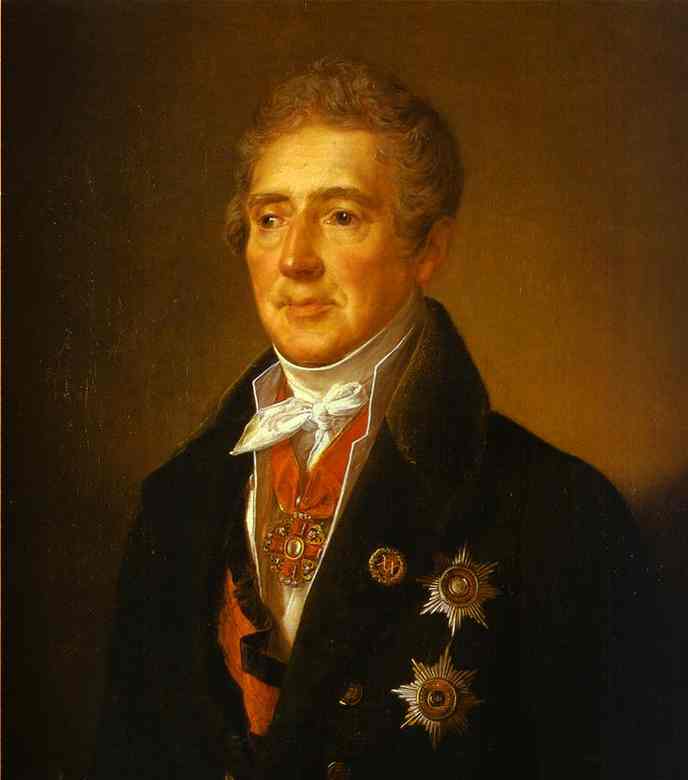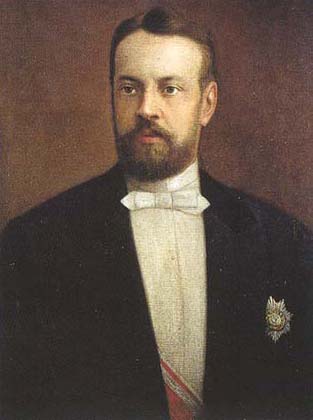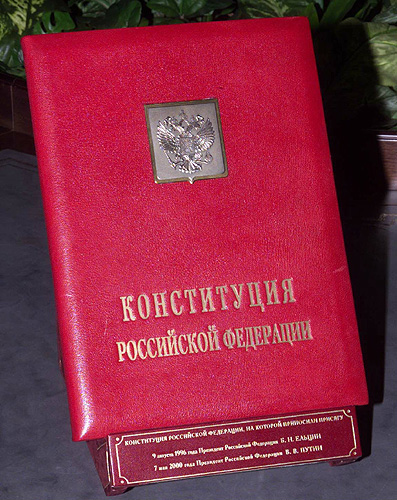|
Mikhail Akimov
Mikhail Grigoroevich Akimov (1847–1915) was a Russian politician. After graduating from the University of Moscow, he entered the Ministry of Justice. He served as an Assistant Public Prosecutor in Kiev in 1881. It is known that he was on the roster of Senators in December 1905, because the Chairman of the Council of Ministers, Sergei Witte Count Sergei Yulyevich Witte (, ; ), also known as Sergius Witte, was a Russian statesman who served as the first prime minister of the Russian Empire, replacing the emperor as head of government. Neither liberal nor conservative, he attracted ..., chose him to be the successor of Sergey Manukhin from that list. He served as Minister of Justice in the Witte government for the remainder of Witte's tenure (April 1906). He was appointed to the Imperial State Council in 1906. He was eventually chosen as the Chairman of the Imperial State Council. References * ''Out of My Past: The Memoirs of Count Kokovtsov'' Edited by H.H. Fisher and ... [...More Info...] [...Related Items...] OR: [Wikipedia] [Google] [Baidu] |
Imperial Moscow University
Imperial Moscow University () was one of the oldest universities of the Russian Empire, established in 1755. It was the first of the twelve imperial universities of the Russian Empire. Its legacy is continued as Lomonosov Moscow State University, which occupies some of its original buildings. History of the University Ivan Shuvalov and Mikhail Lomonosov promoted the idea of a university in Moscow, and Russian Empress Elizabeth decreed its establishment on . The first lectures were given on . Russians still celebrate 25 January as Students' Day. (Foundation of the University is traditionally associated with the feast of Saint Tatiana, celebrated by the Russian Orthodox Church on 12 January Julian, which corresponds to 25 January Gregorian in the 20th–21st centuries.) The present Moscow State University originally occupied the Aptekarskij dom on Red Square from 1755 to 1787. Catherine the Great transferred the University to a Neoclassical building on the other side of Mok ... [...More Info...] [...Related Items...] OR: [Wikipedia] [Google] [Baidu] |
Sergey Manukhin
Sergey Sergeevich Manukhin (1856–1922) was a politician from the Russian Empire. After graduating from the University of Saint Petersburg, he entered the Ministry of Justice. He served in the position of Director of the Ministry's First Department and Assistant Minister of Justice. In 1905 he briefly served as Minister of Justice in the Witte government. He left that post just prior to Witte's resignation after accusations of not being firm or energetic enough in the face of widespread disorders following the disastrous Russo-Japanese War The Russo-Japanese War (8 February 1904 – 5 September 1905) was fought between the Russian Empire and the Empire of Japan over rival imperial ambitions in Manchuria and the Korean Empire. The major land battles of the war were fought on the ... of 1904–1905. He was appointed to the Imperial State Council in 1905. References * Out of My Past: The Memoirs of Count Kokovtsov Edited by H.H. Fisher and translated by Laura Matveev; St ... [...More Info...] [...Related Items...] OR: [Wikipedia] [Google] [Baidu] |
Monarchists From The Russian Empire
Monarchism is the advocacy of the system of monarchy or monarchical rule. A monarchist is an individual who supports this form of government independently of any specific monarch, whereas one who supports a particular monarch is a royalist. Conversely, the opposition to monarchical rule is referred to as republicanism. Depending on the country, a royalist may advocate for the rule of the person who sits on the throne, a regent, a pretender, or someone who would otherwise occupy the throne but has been deposed. History Monarchical rule is among the oldest political institutions. The similar form of societal hierarchy known as chiefdom or tribal kingship is prehistoric. Chiefdoms provided the concept of state formation, which started with civilizations such as Mesopotamia, Ancient Egypt and the Indus Valley civilization. In some parts of the world, chiefdoms became monarchies. Monarchs have generally ceded power in the modern era, having substantially diminished since World ... [...More Info...] [...Related Items...] OR: [Wikipedia] [Google] [Baidu] |
1915 Deaths
Events Below, the events of World War I have the "WWI" prefix. January *January – British physicist Sir Joseph Larmor publishes his observations on "The Influence of Local Atmospheric Cooling on Astronomical Refraction". *January 1 ** WWI: British Royal Navy battleship HMS Formidable (1898), HMS ''Formidable'' is sunk off Lyme Regis, Dorset, England, by an Imperial German Navy U-boat, with the loss of 547 crew. **WWI: Battle of Broken Hill: A train ambush near Broken Hill, Australia, is carried out by two men (claiming to be in support of the Ottoman Empire) who are killed, together with four civilians. * January 5 – Joseph E. Carberry sets an altitude record of , carrying Capt. Benjamin Delahauf Foulois as a passenger, in a fixed-wing aircraft. * January 12 ** The United States House of Representatives rejects a proposal to give women the right to vote. ** ''A Fool There Was (1915 film), A Fool There Was'' premières in the United States, starring Theda Bara as a '' ... [...More Info...] [...Related Items...] OR: [Wikipedia] [Google] [Baidu] |
1847 Births
Events January–March * January 4 – Samuel Colt sells his first revolver pistol to the U.S. government. * January 13 – The Treaty of Cahuenga ends fighting in the Mexican–American War in California. * January 16 – John C. Frémont is appointed Governor of the new California Territory. * January 17 – St. Anthony Hall fraternity is founded at Columbia University, New York City. * January 30 – Yerba Buena, California, is renamed San Francisco. * February 5 – A rescue effort, called the First Relief, leaves Johnson's Ranch to save the ill-fated Donner Party of California-bound migrants who became snowbound in the Sierra Nevada earlier this winter. Some have resorted to survival by cannibalism. * February 22 – Mexican–American War: Battle of Buena Vista – 5,000 American troops under General Zachary Taylor use their superiority in artillery to drive off 15,000 Mexican troops under Antonio López de Santa Anna, defeating the Mexicans the next day. * Febr ... [...More Info...] [...Related Items...] OR: [Wikipedia] [Google] [Baidu] |
Politicians From The Russian Empire
A politician is a person who participates in policy-making processes, usually holding an elective position in government. Politicians represent the people, make decisions, and influence the formulation of public policy. The roles or duties that politicians must perform vary depending on the level of government they serve, whether local, national, or international. The ideological orientation that politicians adopt often stems from their previous experience, education, beliefs, the political parties they belong to, or public opinion. Politicians sometimes face many challenges and mistakes that may affect their credibility and ability to persuade. These mistakes include political corruption resulting from their misuse and exploitation of power to achieve their interests, which requires them to prioritize the public interest and develop long-term strategies. Challenges include how to keep up with the development of social media and confronting biased media, in addition to discrimi ... [...More Info...] [...Related Items...] OR: [Wikipedia] [Google] [Baidu] |
Ivan Shcheglovitov
Ivan Grigoryevich Shcheglovitov (; – 5 September 1918) was a right-wing politician who served as the Russian minister of Justice and the last chairman of the State Council of the Russian Empire. Life Graduate of the Imperial School of Law. Held various posts in the Senate and the Ministry of Justice between 1890 and 1905; Assistant Minister of Justice (1906), Minister of Justice (1906-1915), Member of the State Council (1907), and Chairman of the State Council (January 1917). Shcheglovitov was one of the main instigators of a notorious Blood libel case against Menachem Beilis in 1913. After the February Revolution he was imprisoned by the Bolsheviks in the Peter and Paul Fortress; later transferred to Moscow and executed by the Bolsheviks during the period of Red Terror The Red Terror () was a campaign of political repression and Mass killing, executions in Russian Soviet Federative Socialist Republic, Soviet Russia which was carried out by the Bolsheviks, chiefly ... [...More Info...] [...Related Items...] OR: [Wikipedia] [Google] [Baidu] |
List Of Justice Ministers Of Imperial Russia ...
This is a list of ministers of justice of Russia. Russian Empire Provisional Government/Russian Republic Russian SFSR Russian Federation Timeline See also * Justice Minister * Russian Council of Ministers * Prosecutor General of Russia External links *List of Imperial Russian Ministers (1802-1917)* {{in lang, ru}Official site of the Public Prosecutor Justice Justice In its broadest sense, justice is the idea that individuals should be treated fairly. According to the ''Stanford Encyclopedia of Philosophy'', the most plausible candidate for a core definition comes from the ''Institutes (Justinian), Inst ... [...More Info...] [...Related Items...] OR: [Wikipedia] [Google] [Baidu] |
Sergei Witte
Count Sergei Yulyevich Witte (, ; ), also known as Sergius Witte, was a Russian statesman who served as the first prime minister of the Russian Empire, replacing the emperor as head of government. Neither liberal nor conservative, he attracted foreign capital to boost Russia's industrialization. Witte's strategy was to avoid the danger of wars. Witte served under the final two emperors of Russia, Alexander III () and Nicholas II ().Harcave, Sidney. (2004)''Count Sergei Witte and the Twilight of Imperial Russia: A Biography,'' p. xiii./ref> During the Russo-Turkish War (1877–78), he had risen to a position in which he controlled all the traffic passing to the front along the lines of the Odessa Railways. As finance minister from 1892–1903, Witte presided over extensive industrialization and achieved government monopoly control over an expanded system of railroad lines. Following months of civil unrest and outbreaks of violence in what became known as the 1905 Russian Re ... [...More Info...] [...Related Items...] OR: [Wikipedia] [Google] [Baidu] |
Russian Politics
The politics of Russia take place in the framework of the federal semi-presidential republic of Russia. According to the Constitution of Russia, the President of Russia is head of state, and of a multi-party system with executive power exercised by the government, headed by the Prime Minister, who is appointed by the President with the parliament's approval. Legislative power is vested in the two houses of the Federal Assembly of the Russian Federation, while the President and the government issue numerous legally binding by-laws. Since the collapse of the Soviet Union at the end of 1991, Russia has seen serious challenges in its efforts to forge a political system to follow nearly seventy-five years of Soviet governance. For instance, leading figures in the legislative and executive branches have put forth opposing views of Russia's political direction and the governmental instruments that should be used to follow it. That conflict reached a climax in September and October ... [...More Info...] [...Related Items...] OR: [Wikipedia] [Google] [Baidu] |






